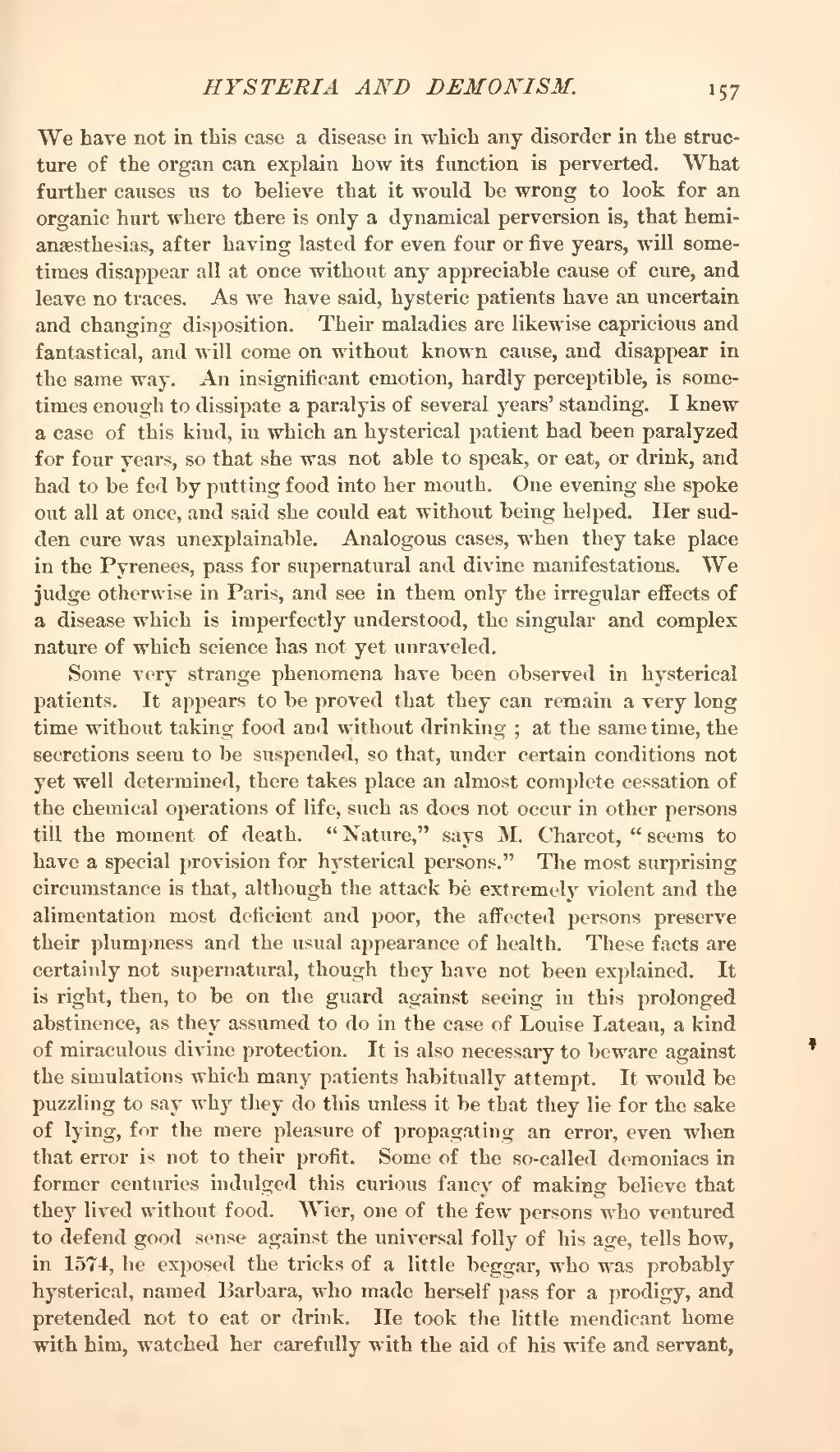We have not in this case a disease in which any disorder in the structure of the organ can explain how its function is perverted. What further causes us to believe that it would be wrong to look for an organic hurt where there is only a dynamical perversion is, that hemianæsthesias, after having lasted for even four or five years, will sometimes disappear all at once without any appreciable cause of cure, and leave no traces. As we have said, hysteric patients have an uncertain and changing disposition. Their maladies are likewise capricious and fantastical, and will come on without known cause, and disappear in the same way. An insignificant emotion, hardly perceptible, is sometimes enough to dissipate a paralyis of several years' standing. I knew a case of this kind, in which an hysterical patient had been paralyzed for four years, so that she was not able to speak, or eat, or drink, and had to be fed by putting food into her mouth. One evening she spoke out all at once, and said she could eat without being helped. Her sudden cure was unexplainable. Analogous cases, when they take place in the Pyrenees, pass for supernatural and divine manifestations. We judge otherwise in Paris, and see in them only the irregular effects of a disease which is imperfectly understood, the singular and complex nature of which science has not yet unraveled.
Some very strange phenomena have been observed in hysterical patients. It appears to be proved that they can remain a very long time without taking food and without drinking; at the same time, the secretions seem to be suspended, so that, under certain conditions not yet well determined, there takes place an almost complete cessation of the chemical operations of life, such as does not occur in other persons till the moment of death. "Nature," says M. Charcot, "seems to have a special provision for hysterical persons." The most surprising circumstance is that, although the attack be extremely violent and the alimentation most deficient and poor, the affected persons preserve their plumpness and the usual appearance of health. These facts are certainly not supernatural, though they have not been explained. It is right, then, to be on the guard against seeing in this prolonged abstinence, as they assumed to do in the case of Louise Lateau, a kind of miraculous divine protection. It is also necessary to beware against the simulations which many patients habitually attempt. It would be puzzling to say why they do this unless it be that they lie for the sake of lying, for the mere pleasure of propagating an error, even when that error is not to their profit. Some of the so-called demoniacs in former centuries indulged this curious fancy of making believe that they lived without food. Wier, one of the few persons who ventured to defend good sense against the universal folly of his age, tells how, in 1574, he exposed the tricks of a little beggar, who was probably hysterical, named Barbara, who made herself pass for a prodigy, and pretended not to eat or drink. He took the little mendicant home with him, watched her carefully with the aid of his wife and servant,

